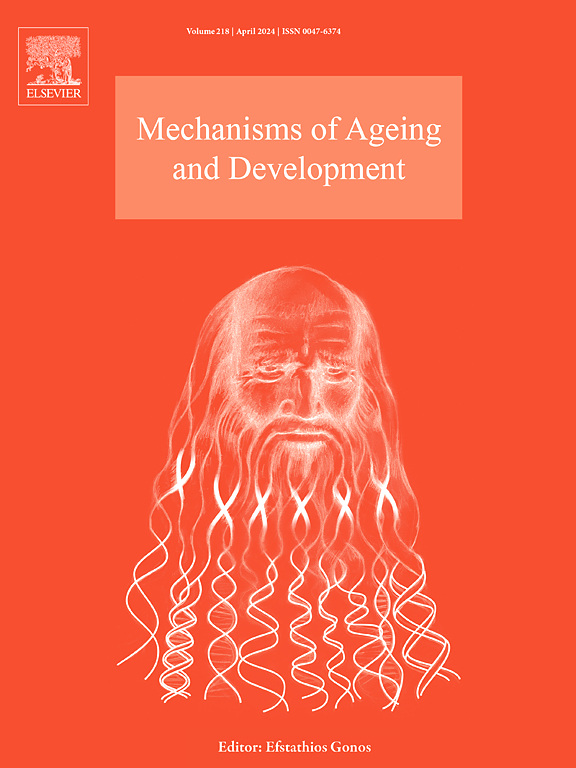The impact of sleep and exercise on brain atrophy in mild cognitive impairment
IF 5.1
3区 医学
Q2 CELL BIOLOGY
引用次数: 0
Abstract
Chronic sleep deprivation and lack of physical exercise may have detrimental effects on overall health, particularly in terms of brain health, with significant implications for cognitive function and well-being. This review explores the impact of chronic sleep deprivation and physical exercise on brain atrophy in mild cognitive impairment (MCI) and Alzheimer’s disease (AD). Drawing insights from 40 selected studies, the review synthesizes evidence on these lifestyle factors' correlations with neurodegenerative changes. Chronic sleep deprivation disrupts circadian rhythms and neurochemical pathways, potentially accelerating brain atrophy, while physical exercise preserves brain structure by enhancing vascular health, reducing inflammation, and supporting synaptic plasticity, particularly in regions like the hippocampus. Results highlight distinct patterns of brain atrophy in AD and MCI, underscoring the potential for targeted interventions to mitigate cognitive decline. Understanding the relationship between sleep disruption and brain health provides insights into strategies for possibly delaying neurodegenerative diseases like MCI, which represents a milder form of Alzheimer's, and AD. The findings underscore the potential utility of integrating sleep therapy and physical exercise interventions in clinical practice for early detection of mild cognitive impairment and potentially delaying disease progression. This integrated approach has been found to promote healthy aging, reduce atrophy rates, and enhance cognitive resilience across aging populations.
睡眠和运动对轻度认知障碍患者脑萎缩的影响。
长期睡眠不足和缺乏体育锻炼可能对整体健康产生不利影响,特别是在大脑健康方面,对认知功能和福祉产生重大影响。本文综述了慢性睡眠剥夺和体育锻炼对轻度认知障碍(MCI)和阿尔茨海默病(AD)脑萎缩的影响。从40项选定的研究中得出见解,该综述综合了这些生活方式因素与神经退行性变化相关的证据。长期睡眠不足会扰乱昼夜节律和神经化学途径,可能会加速脑萎缩,而体育锻炼可以通过增强血管健康、减少炎症和支持突触可塑性(尤其是海马体等区域)来保护大脑结构。结果强调了AD和MCI中不同的脑萎缩模式,强调了有针对性的干预措施减轻认知能力下降的潜力。了解睡眠中断和大脑健康之间的关系,可以为可能延缓神经退行性疾病(如轻度认知损伤)和阿尔茨海默病(AD)的策略提供见解。轻度认知损伤是阿尔茨海默病的一种轻微形式。研究结果强调了睡眠疗法和体育锻炼干预在临床实践中的潜在效用,可以早期发现轻度认知障碍,并可能延缓疾病进展。这种综合方法已被发现可以促进健康老龄化,减少萎缩率,并增强老年人的认知弹性。
本文章由计算机程序翻译,如有差异,请以英文原文为准。
求助全文
约1分钟内获得全文
求助全文
来源期刊
CiteScore
11.10
自引率
1.90%
发文量
79
审稿时长
32 days
期刊介绍:
Mechanisms of Ageing and Development is a multidisciplinary journal aimed at revealing the molecular, biochemical and biological mechanisms that underlie the processes of aging and development in various species as well as of age-associated diseases. Emphasis is placed on investigations that delineate the contribution of macromolecular damage and cytotoxicity, genetic programs, epigenetics and genetic instability, mitochondrial function, alterations of metabolism and innovative anti-aging approaches. For all of the mentioned studies it is necessary to address the underlying mechanisms.
Mechanisms of Ageing and Development publishes original research, review and mini-review articles. The journal also publishes Special Issues that focus on emerging research areas. Special issues may include all types of articles following peered review. Proposals should be sent directly to the Editor-in-Chief.

 求助内容:
求助内容: 应助结果提醒方式:
应助结果提醒方式:


